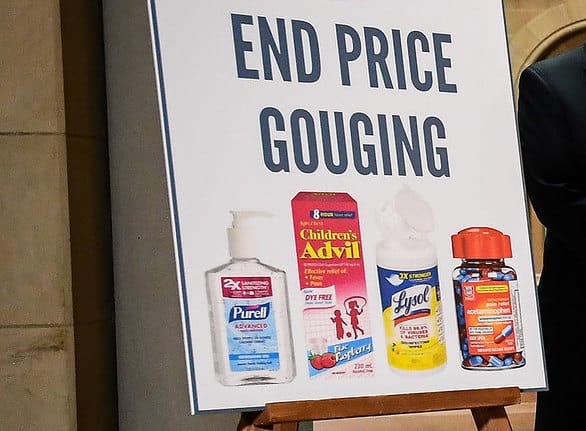Next year, we’ll have to make one of the most important decisions about the future of our economy. Will we hand more power and wealth to big corporations and the rich — or invest in a healthy and resilient economy that works for all of us?
In 2017, Republican lawmakers passed tax loopholes and cuts that primarily benefited the wealthy and big corporations. President Trump signed these giveaways into law, spiking inequality and setting off a wave of corporate profiteering.
Next year, parts of that law will begin to expire, which gives us the opportunity to make changes.
For decades, both parties have created an economy where big corporations and the wealthy aren’t pitching in like the rest of us. We’ve been sold a bill of goods known as “trickle down” economics. Trickle down goes like this: Feed the rich the best cut of meat and maybe we’ll get a bit of gristle that falls on the floor — and we’ll thank them for it.
The rich and most profitable corporations aren’t just contributing less and less to our collective coffers. They’re using their power to enrich themselves further while more of us struggle. Senator Elizabeth Warren recently described this as a “doom loop” for our tax code: the wealthy and corporations get richer from tax giveaways and then use their wealth and power to boost their profits — and then lobby for more tax cuts.
For example, the 2017 Trump tax cuts dropped the top corporate tax rate to 21 percent from 35 percent (compared to 40 percent in 1987). Supporters argued this would lead to better wages and supercharge economic growth. Instead, economic growth continued at about the same pace as before the tax breaks. And while 90 percent of workers did not see a raise, billionaire wealth has doubled.
In the same period in which corporations have enjoyed lower taxes, they’ve also raked in record profits. As my colleagues at Groundwork Collaborative have highlighted, lowering corporate tax rates actually incentivized corporate profiteering in the wake of the pandemic, as companies that overcharged us got to keep more of their winnings.
Understanding Lease Agreements
Trickle down theory says these windfall profits and lower taxes should encourage companies to invest more in workers and innovation. But in an economy run by big corporations with enormous market share, that money ends up being funneled to shareholders instead of increasing worker wages, investing in new or more productive technologies, or holding critical inventories in case of a crisis.
If we want corporations to invest more in wages and productive investments, we should raise their taxes, since wages and research are mostly tax deductible.
In other words, corporate profiteering is not a foregone conclusion. Raising corporate taxes has the potential to boost investment, productivity, and economic growth — and get Americans some of their money back.
The Biden administration has taken critical steps to push back against failed trickle down economics and corporate profiteering. It capped the price of essential drugs like insulin, empowered regulators to go after corporations abusing their market power, and made historic investments in a green future. But more can be done by raising taxes on the largest, most profitable corporations.
Fundamentally, the coming tax debate is about who holds the reins in shaping our economy: megacorporations and their wealthy shareholders, or the everyday people who keep the economy humming. Next year is an opportunity for Congress to stand firm against the rich and powerful and build the economy that we want to see.





